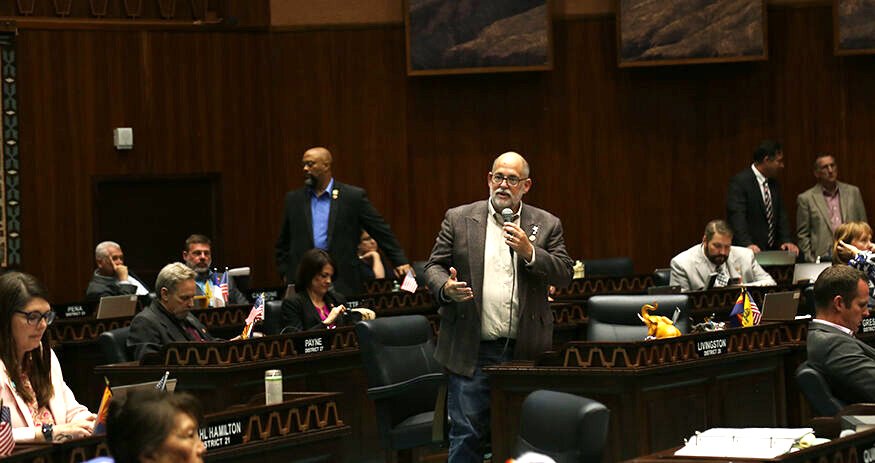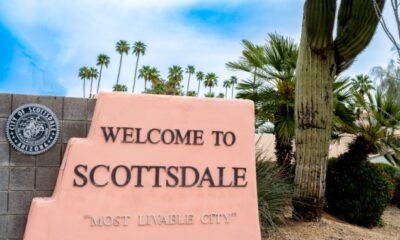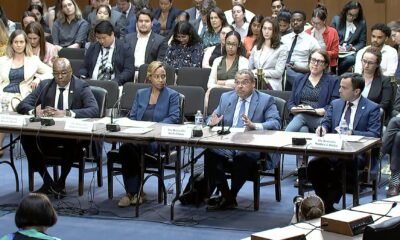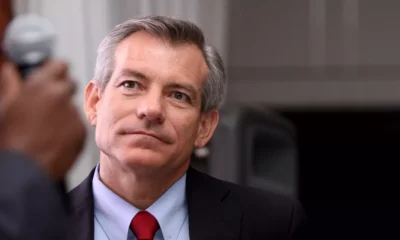AHCCCS
Battle Royale Erupts Over Childhood Disability Programs

Governor Katie Hobbs criticized Republican lawmakers on February 26, claiming they are exploiting families with children who have developmental disabilities in the ongoing budget dispute. During a meeting with the Arizona Disability Advocacy Council, she stated, “Their negligence is jeopardizing the health, independence, and lives of more than 50,000 Arizonans with disabilities.” She emphasized an urgent need for $122 million to sustain the Division of Developmental Disabilities (DDD) services, warning that failure to secure funds could disrupt payments to service providers by May.
Hobbs accused the legislative majority of using the vulnerable population as “political pawns.” In response, Rep. David Livingston, chair of the House Appropriations Committee, blamed the funding crisis on what he termed excessive spending by the governor. He stated, “The Legislature was never consulted before these funds were spent,” urging that taxpayers should not bear the burden of these financial missteps.
The financial shortfall primarily affects a program initiated in 2020, designed to support parents acting as caregivers during the COVID-19 pandemic. While these federal Medicaid funds are evaporating, Hobbs has opted to continue the program despite the fiscal implications. She argued that all parties involved initially understood the necessity for the state to cover the costs.
Although Hobbs recognized the existing shortfall, she attributed it to unexpected growth in the DDD program. In an effort to rally public support, she conveyed the urgency of the situation in a high-profile manner, speaking before families with disabilities present, claiming, “It does not matter how many times they try to spin it. They are trying to put the blame for this on me and it is squarely on them.”
To resolve the impasse, she urged immediate financial allocation and provided the Legislature with a comprehensive budget proposal in January, stressing that it included funds for both the upcoming fiscal year and the current budget cycle. “If they have other ideas, they should give me a budget instead,” she asserted, challenging lawmakers to present their alternatives.
Livingston rebuffed her approach, insisting that merely providing additional funds is not a responsible strategy. He called for more substantive discussions and criticized the governor’s public blame-shifting. “Rather than engaging with the Legislature in good faith, you and your staff have chosen to issue public statements, assign blame, and demand more taxpayer dollars,” he remarked in his letter to her.
The governor countered that she had made her proposal clear, placing the onus on the Legislature for further action. “I haven’t seen one plan from them,” she said. Hobbs downplayed any concerns regarding her request for supplemental funding mid-budget year, noting it is a common practice, citing past instances where legislators approved additional funds without hesitation.
As the debate continues, the larger implications for Arizona’s Medicaid funding remain a pressing concern. With over 2 million residents relying on the Arizona Health Care Cost Containment System, the potential cuts contemplated by Congress could significantly impact state finances, notably in health care services. Hobbs warned of “looming” financial challenges, highlighting the strain on rural hospitals under the threat of closure due to uncompensated care costs.
“The hospitals and everyone are sounding the alarm,” she stated, particularly noting the precarious situation faced by rural facilities.


















